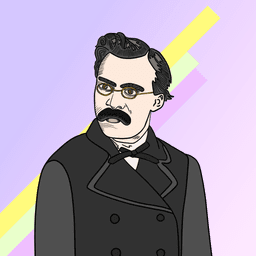Wieder vs. Wider
Dive into the German language and unravel the mystery between 'wieder' and 'wider'. These two might trick you with their similar looks, but they lead to very different paths in meaning and usage.
The key to distinguishing wieder from wider lies in their meanings. Wieder means "again," used for things that repeat or return. Wider, however, translates to "against," indicating opposition or resistance. So, while wieder has you revisiting, wider has you resisting.
In the journey of learning German, it's easy to stumble upon words that look and sound similar but carry entirely different meanings. Today, we're exploring two such words: wieder and wider. Though they may seem alike at first glance, they play very different roles in the German language.
What Does "Wieder" Mean?
The word wieder translates to "again" in English. It is used to indicate repetition or the return of a state or action. For example, when you say "Ich lese das Buch wieder," you are saying "I am reading the book again." It implies that you have read the book before and are now reading it once more.
What Does "Wider" Mean?
On the other hand, wider is a preposition that translates to "against" in English. It is used to express opposition or resistance to something. An example sentence would be "Er handelt wider den Rat seines Freundes," which means "He acts against his friend's advice." This shows that there is some form of opposition to the advice given.
Key Differences
The main difference between wieder and wider lies in their meanings and uses:
- Wieder is about repetition or returning to a previous state.
- Wider expresses opposition or being against something.
Usage in Sentences
To better understand the distinction, here are some examples:
-
Wieder:
- "Sie besucht uns wieder nächste Woche." (She is visiting us again next week.)
- "Das Wetter ist wieder schön." (The weather is nice again.)
-
Wider:
- "Das geht wider meine Prinzipien." (That goes against my principles.)
- "Sie wehrte sich wider die Anschuldigungen." (She defended herself against the accusations.)
Conclusion
Although wieder and wider might appear similar at a glance, their meanings and applications are distinctly different. Wieder is used when talking about something happening again, while wider is used to denote opposition or resistance. Recognizing this difference is crucial for using these words correctly in conversation and writing, helping you to express yourself more accurately in German.
Always remember, practice makes perfect. The more you use these words in your German sentences, the easier it will become to remember their meanings and differences.




